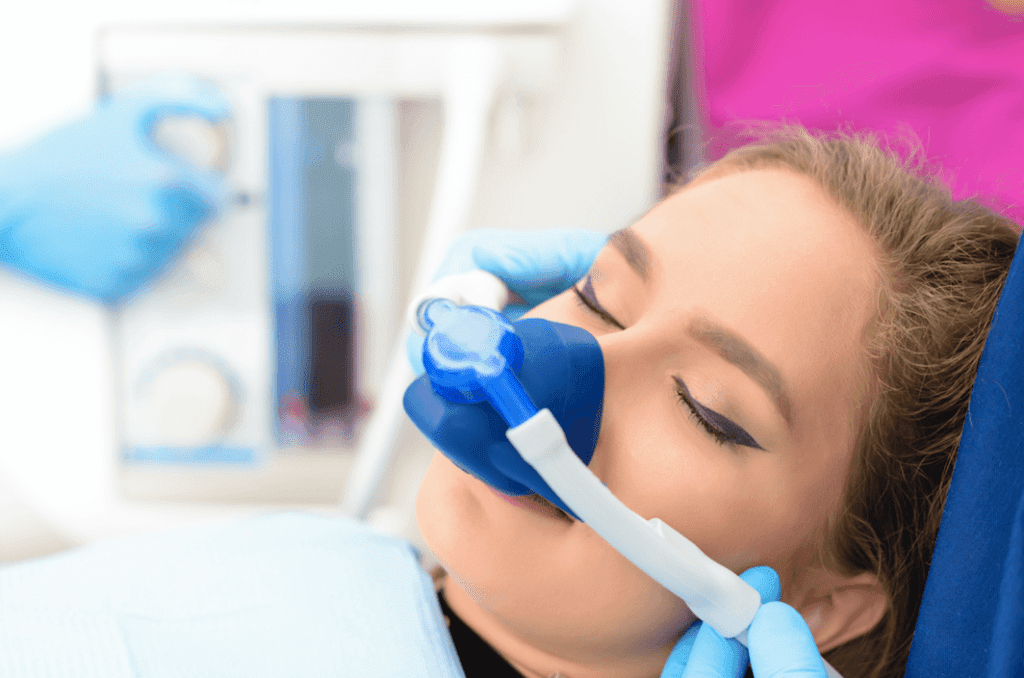Do you or a loved one have dental fear or anxiety? We can help. Dr. Catherine Wilder and Dr. Lauren Shepard offer sedation dentistry at Katy Smile Design in Katy, TX. Dental sedation is a part of general dentistry and helps patients receive preventative dental care. Sedation can also calm anxious or fearful patients.
Dr. Wilder and Dr. Shepard take a compassionate approach to dental care. In addition to tools like sedation, this approach makes it easier for patients to receive effective dental treatment.
The Benefits of Sedation Dentistry
Sedation offers many advantages for patients who require extensive dental care. Dental sedation:
- Offers painless treatment
- Allows dentists to provide faster care
- Is a safe and approved treatment method
- Requires fewer dental appointments for patients
- Helps ease patients fear and anxiety
If you or a loved one suffer from dental fear or anxiety, contact Katy Smile Design so we can accommodate your needs. We want our office to be a space where everyone can feel comfortable.
Types of Dental Sedation
Patients have multiple sedation methods to choose from at the dentist. The type of sedation we recommend depends on the patient’s age, medical history, and medications.
For instance, we will not recommend IV sedation for patients with kidney or liver problems. Oral conscious sedation may not be the best for patients with metabolic problems as it will take these patients time to metabolize the sedative. Pregnant patients or patients with respiratory issues will not benefit from nitrous oxide.
There are three main types of sedation dentistry:
Nitrous Oxide
Also known as laughing gas, nitrous oxide delivers a mild sedative through a mask or cannula placed under the nose. This type of sedation calms and relaxes patients for their procedures. Under nitrous oxide, patients may feel happy or giggly yet calm. Patients can drive themselves to and from appointments because nitrous oxide wears off after we remove the mask.
Oral Conscious Sedation
Patients who undergo this type of sedation take anxiety medication before their dental visit. While patients may be conscious yet comfortable under this sedation method, they may not remember their procedure. However, patients will need transportation to and from their appointments. It takes time for the oral conscious sedation to take effect and wear off.
IV Sedation
IV sedation delivers anti-anxiety medication into the bloodstream. Patients often feel sleepy under IV sedation several moments after administration. Like oral conscious sedation, it takes time for IV sedation to wear off. Patients may still feel tired after IV sedation and will need someone else to drive them home from their appointment.
Who Benefits From Sedation Dentistry?
Typically, sedation is known as a treatment option for patients who have dental anxiety. Dental fear occurs on a spectrum. Some patients are only triggered by specific sounds or machines in the dentist’s office. Others have such bad anxiety that they can’t even step inside the office to get regular dental care. We offer multiple sedation options to ensure all patients on the dental fear spectrum can get the care they need.
But patients with dental fear aren’t the only ones who benefit from sedation dentistry. Sedation also helps patients who have to get multiple procedures done at once. Patients who are afraid of the dentist often don’t stay current on oral care. Sometimes, patients need more intensive work that has longer treatment times. This is also true for patients who have neglected oral care and need more severe procedures.
Safe oral care can be complex for patients with special needs or movement disorders. Involuntary movements can make it hard for the dentist because dentistry is extremely precise. If a movement messes them up, instruments can enter places they’re not intended to go. This is also true for children with difficulty sitting still or needing more extensive work. Sedation relaxes these involuntary movements so we can safely provide care.
Gag reflexes make treatment uncomfortable for patients. Essentially, your body is fighting the dentist while they’re trying to treat you. It’s hard for our dentist to do their work as well. Sedation can also calm this reflex, making care more accessible and comfortable.
Contact Our Dental Office Today
Ask us about relaxing sedation dentistry in Katy, TX. Schedule a dental appointment with Dr. Wilder and Dr. Shepard on our website. You may also contact our office at 281.396.4366. Let our team know if you have any remaining questions about sedation dentistry. We will be happy to help you.

